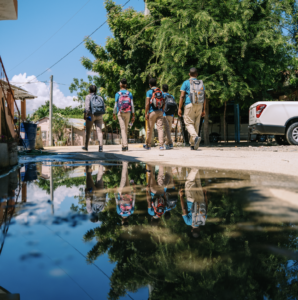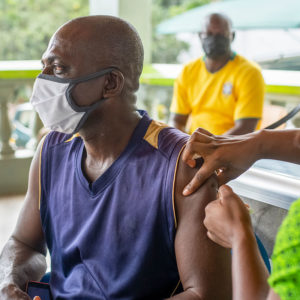Challenging Anti-Vaccine Sentiments

The rise of anti-vaccine and anti-science sentiment poses an immense challenge to efforts fighting vaccine-preventable diseases, especially during the global rollout of COVID-19 vaccines. GLIDE, in collaboration with New York University’s School of Global Public Health (GPH), UNICEF, WHO EMRO, and the American University of Beirut Faculty of Health Sciences Center for Public Health Practice (AUB), delivered a course to strengthen capacity entitled Behavioral Communication Strategies for Epidemics: Social Behavior Change for Vaccinations. The course targeted public health professionals in the Eastern Mediterranean/MENA region from UN Agencies, National governments, Faith-based organisations, Private For-Profit health organisations, and non-governmental organisations, among others, who are already engaged in vaccine delivery and acceptance.
Effectively challenging anti-vaccine sentiments
Through self-paced and live interactive and collaborative sessions, the participants covered such topics as:
- Social listening
- Community feedback
- How to collect and use social and behavioral data
- The role of the media
- Combatting rumors and misinformation
Participants also explored barriers and contributing factors to successful immunisation campaigns, using case studies and examples of other vaccine introductions and the importance of advocacy in engaging with communities.
GLIDE will continue to work with NYU and partners to develop and deliver courses that build capacity and knowledge of the latest disease elimination efforts.



